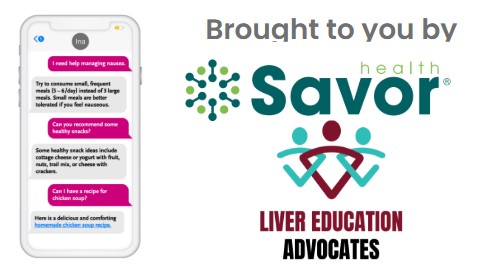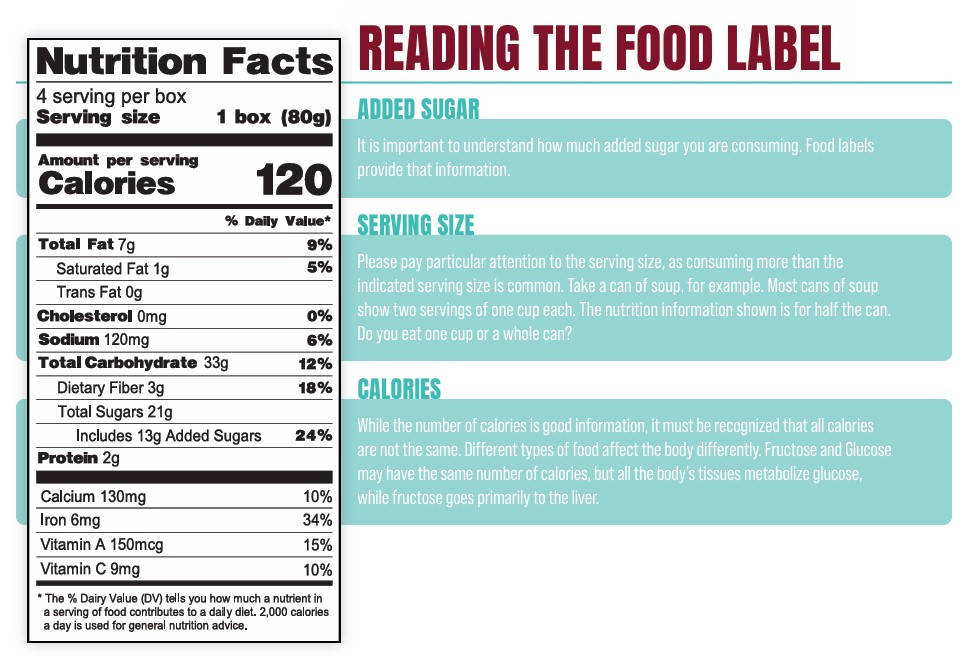Lifestyle Foundations for a Healthy Liver
Movement, restorative rest, and stress balance work together to cut fat, lower inflammation, and give your liver the resilience it needs to thrive.

Nutrition
Learn about nutrient-rich foods, dietary strategies, and lifestyle adjustments shown to promote detoxification, reduce liver fat, and protect against long-term damage. Whether managing a condition or maintaining preventive care, these insights can help safeguard your liver and overall health.

Exercise
- Focus: Regular cardio and strength training protect your liver and overall metabolism.
- Benefit: Cuts liver fat by 25–30%, improves heart health, insulin resistance, sleep, and mood.
- Tip: Aim for 150 minutes of movement per week, plus resistance training to build muscle and keep metabolism strong. Track progress with a fitness app or wearable.

Sleep
- Focus: Consistent, restorative rest gives your liver the downtime to repair and regulate body systems.
- Benefit: 7–9 hours of nightly sleep supports liver cell renewal, balances blood sugar, reduces stress hormones, and boosts energy.
- Tip: Keep a steady bedtime, power down screens an hour before bed, and try calming habits like stretching, tea, or guided relaxation.

Stress
- Focus: Chronic stress strains the liver by driving inflammation and raising insulin resistance.
- Benefit: Managing stress lowers liver burden, protects hormone balance, and strengthens overall resilience.
- Tip: Stay active to release tension, lean on supportive relationships, seek professional guidance when needed, and give back—volunteering boosts both mood and liver health.
Savor Health® & Ina®
Personalized Nutrition Support
Introducing Ina®
The Intelligent Nutrition Assistant from Savor Health®

Ina® the Intelligent Nutrition Assistant from Savor Health®
Liver Education Advocates is proud to partner with Savor Health® to bring Ina®, the world’s first Dietitian-on-Demand, to our community. Ina® provides personalized, evidence-based nutrition guidance 24/7 via text message, helping you manage and prevent liver-related conditions—and improve your overall health.
With Ina®, you can:
- Get clinically personalized nutrition support tailored to your symptoms, diet, and health needs.
- Access the knowledge of registered dietitians, nurses, and doctors, all based on the latest medical evidence.
- Receive recipes, practical interventions, and quick answers to your nutrition questions.
- Enjoy safe, secure, and free access—anytime, anywhere.
How It Works
- Register with your mobile phone number.
- Complete a short health profile.
- Start texting Ina® with your nutrition questions and receive instant support.
Register today and get started in less than 3 minutes:
Nutrition and Liver Health
Healthy plates, healthier livers: explore three diets that cut fat and calm inflammation.

Mediterranean Diet
- Focus: Balanced mix of whole grains, olive oil, nuts, lean fish, poultry, vegetables, fruits
- Avoid: Added sugars, soda, refined carbs
- Benefit: Anti-inflammatory, improves heart and liver health, lowers fat by 15–30%
- Tip: Replace soda with lemon water or sparkling water

Low-Carb Diet
- Focus: Protein-forward meals with vegetables, healthy fats, and limited starches
- Avoid: White bread, pasta, sweets, processed snacks
- Benefit: Cuts liver fat by 15–20%, helps with weight and blood sugar control
- Tip: Build meals around lean meats, fish, eggs, or legumes paired with non-starchy vegetables

Plant Diet
- Focus: 100% plant foods—vegetables, fruits, whole grains, beans, legumes, nuts, seeds
- Avoid: Meat, dairy, refined sugar, highly processed foods
- Benefit: Reduces liver fat and stiffness by 20–30%, improves cholesterol and gut health
- Tip: Create variety with colorful produce, whole grains, and plant-based proteins

MILPA Diet
- Focus: Traditional Mesoamerican crops: Maize, beans, squash, chili, tomato, greens, fruits, nuts, seeds, whole grains, healthy oils
- Avoid: Processed foods, refined sugars, saturated fats, red meats; limit dairy and lean meat
- Benefit: Lowers liver fat and inflammation; improves cholesterol, insulin sensitivity, and gut health
- Tip: Build meals with maize, beans, squash; add colorful veggies, nuts, seeds; avoid sugary drinks
Sugar and Your Liver
A no-fructose, no-alcohol, no-processed-foods strategy to shield your liver

No Fructose

No Alcohol

No Processed Foods
Reading Labels Beyond Added Sugars
Understanding the full nutrition panel helps you choose foods that support your liver:
- Total Carbohydrates & Fiber: Higher fiber slows sugar absorption and eases liver load.
- Saturated & Trans Fats: Keep these low to prevent additional metabolic stress.
- Sodium: Watch for high salt levels that can worsen fluid retention.
- Ingredient Order: The first few items make up the largest portions of the product.
- Additives & Preservatives: Look out for artificial colors, flavors, and stabilizers that may impact liver function.


Black Coffee: The Only Proven Substance that Protects the Liver
Black coffee is unique among dietary components for its consistent, science-backed benefits in liver health. Regular consumption has been linked to a lower risk of chronic liver disease, cirrhosis, and even hepatocellular carcinoma. Here’s how black coffee works its protective magic:
Antioxidant and Anti-Cancer Effects
Coffee is rich in polyphenols and other antioxidants that neutralize free radicals and prevent oxidative damage to liver cells. These compounds also inhibit pathways that can lead to cancer development, making coffee one of the few everyday beverages with documented anti-cancer properties.
Improves Liver Enzyme Levels
Elevated liver enzymes (such as ALT and AST) often indicate inflammation or injury. Studies show that drinking two to three cups of coffee per day correlates with significantly lower levels of these enzymes, reflecting healthier, less stressed liver function.
Reduces Inflammation and Fibrosis
Chronic inflammation and the progressive scarring of liver tissue (fibrosis) underlie many serious liver conditions. Coffee consumption has been shown to reduce inflammatory markers and slow the buildup of fibrotic tissue, helping to preserve the liver’s regenerative capacity over time.

Don't Do It Alone
Living with liver disease and specifically making life-saving lifestyle changes is not always easy! That is why Liver Education Advocates has a Liver Disease Support Group for patients, caregivers or anyone trying to improve their liver health. Sometimes it’s just helpful to talk with someone else who gets it and is on a similar journey.
Medical Disclaimer
Always consult your doctor before making any major changes to diet, exercise, or supplements.



